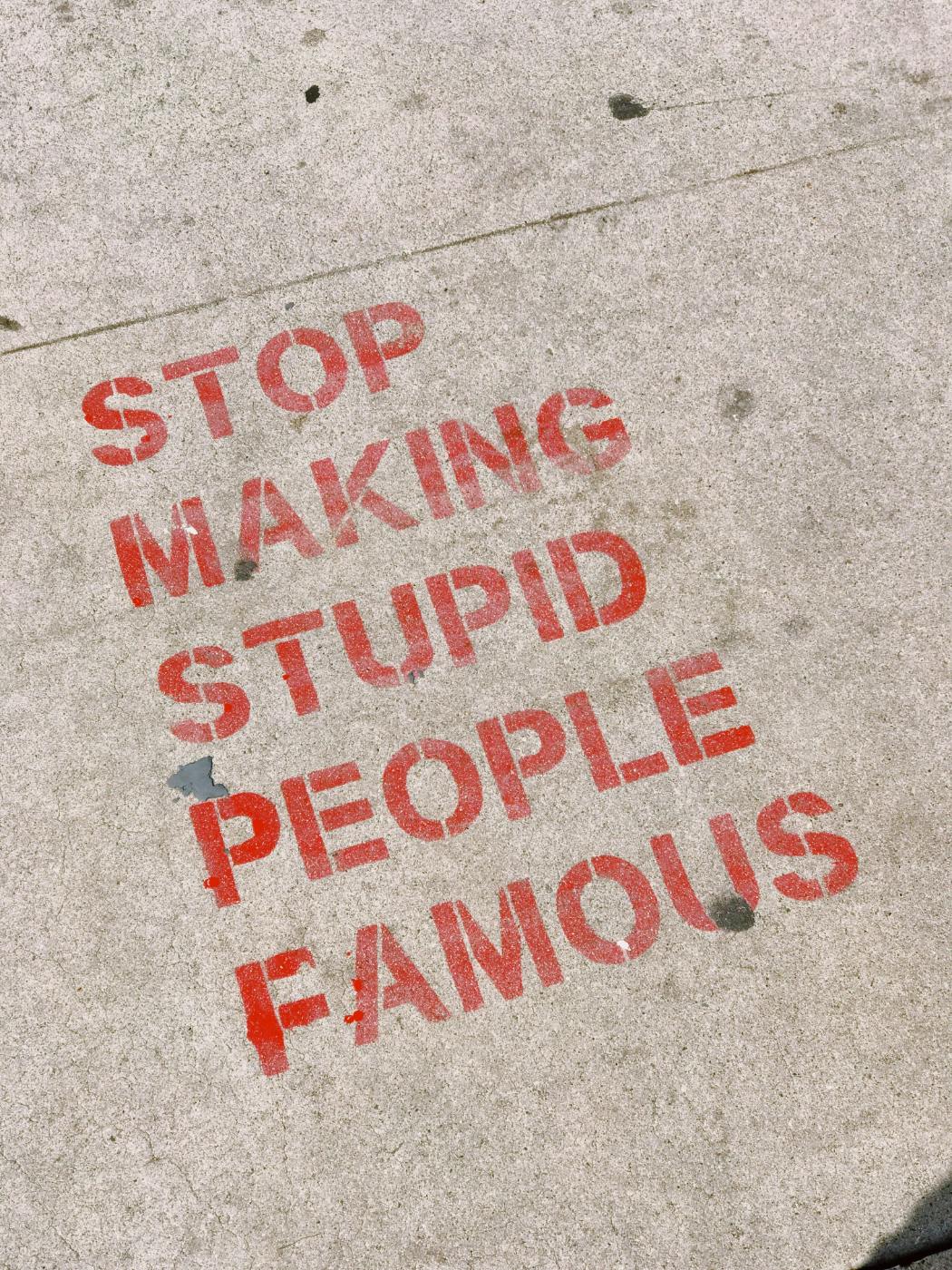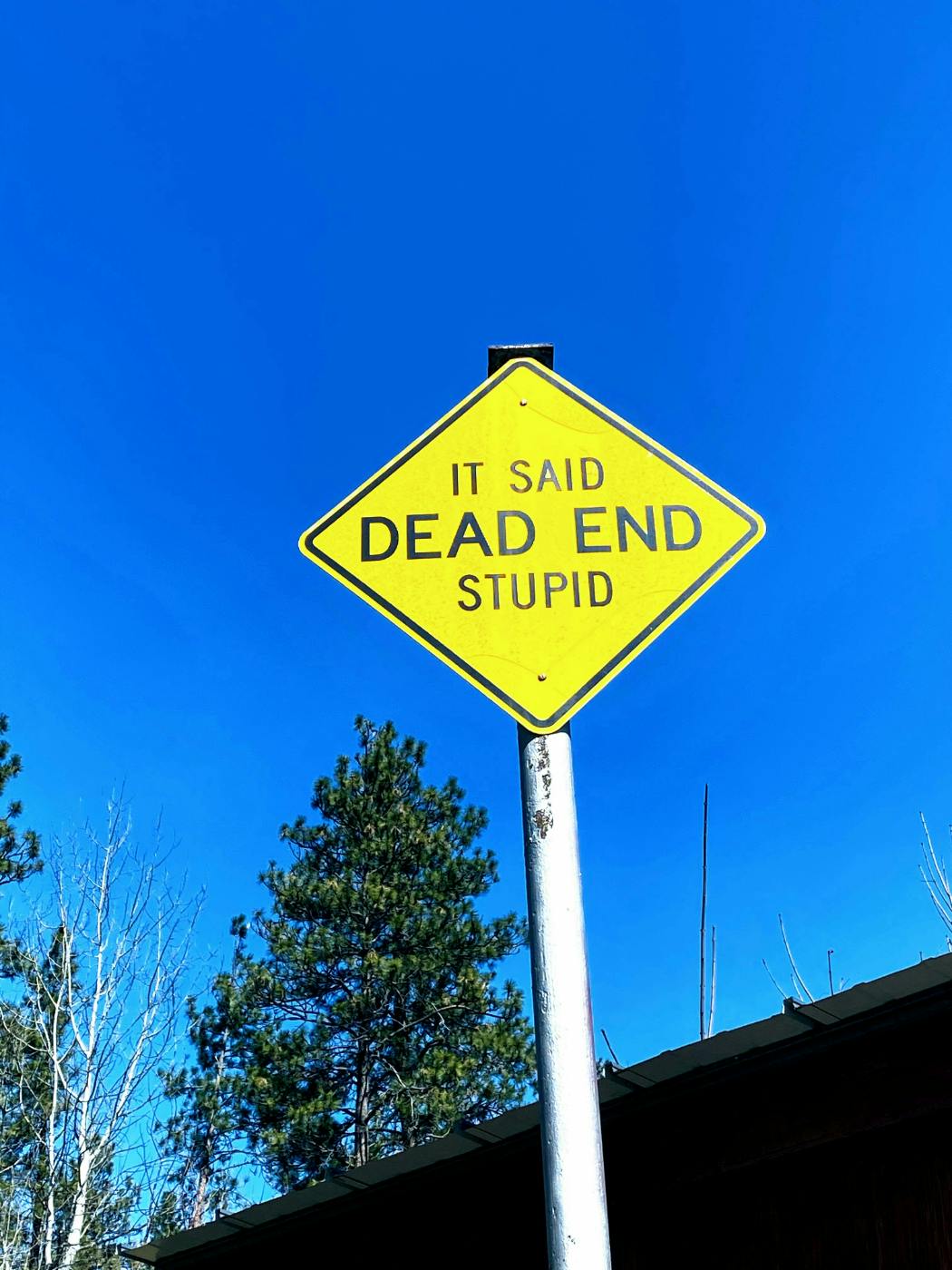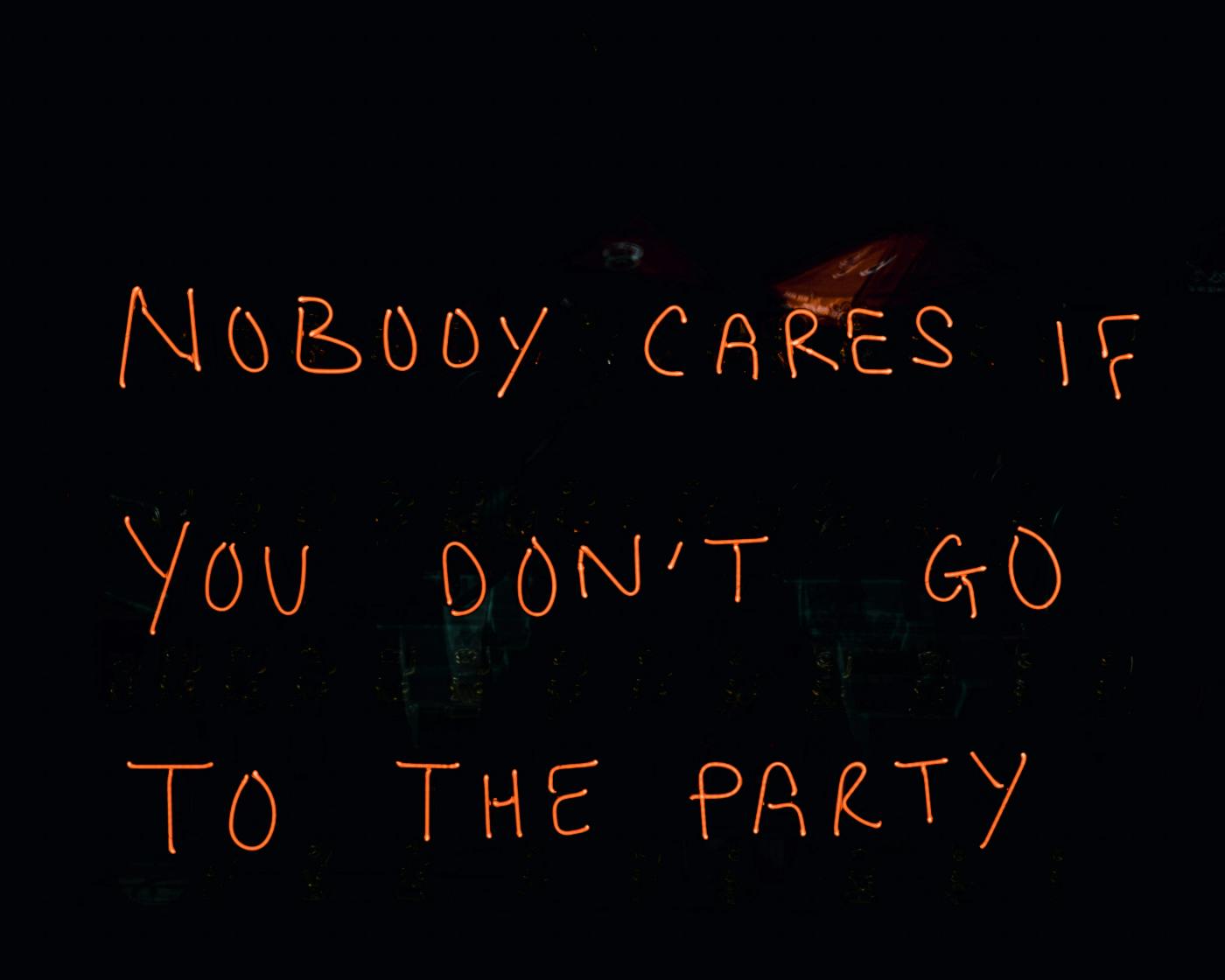
The term “influencer” didn’t always exist. A few decades ago, fame was reserved for movie stars, musicians, and athletes—people whose talent or achievements brought them into the public eye. But as social media grew in the early 2000s, particularly with the launch of platforms like YouTube, Instagram, and eventually TikTok, a new form of public influence emerged.
The Illusion of Influence: A Brief History of Influencers
The term “influencer” didn’t always exist. A few decades ago, fame was reserved for movie stars, musicians, and athletes—people whose talent or achievements brought them into the public eye. But as social media grew in the early 2000s, particularly with the launch of platforms like YouTube, Instagram, and eventually TikTok, a new form of public influence emerged. It wasn’t about being a great actor, a visionary musician, or a world-class athlete—it was about being relatable.
The first influencers weren’t corporate-sponsored brand ambassadors; they were regular people who created content around their everyday lives, hobbies, and passions. They used platforms to engage with niche communities, often without the intention of monetizing it. Take YouTubers in the early days—people like Zoella, PewDiePie, or Casey Neistat—who simply shared their lives, opinions, and creations with a small but dedicated audience. Their popularity grew naturally, based on the authentic connection they seemed to build with their followers. It was organic, or at least it seemed that way.
But something changed as social media platforms evolved. The algorithmic push for engagement began to shape content creation in ways that didn’t always prioritize authenticity or creativity. Likes, shares, and comments became the currency, and soon, people realized that cultivating a large following could translate into serious cash. Influencers became a business, and the line between personal expression and brand promotion became increasingly blurred.
With the rise of sponsored posts, affiliate links, and product placements, the influencer industry shifted from a hobbyist culture to a multi-billion-dollar global market. Suddenly, it wasn’t just about sharing life experiences—it was about selling an image. And this image, it turns out, could be marketed and monetized in ways we had never seen before.
Today, influencers dominate nearly every corner of the internet, from fashion and beauty to travel, fitness, and even mental health. They have the power to shape opinions, dictate trends, and sway purchasing decisions in a way that traditional advertising could only dream of. The most successful influencers have millions of followers, with their every post creating waves of engagement, products flying off shelves, and entire industries shifting to meet the demands of their audiences.
But as influencers have risen to prominence, we have to ask: What exactly do they offer that makes their influence so valuable? Beyond the sales, the sponsorships, and the constant flood of content, what real impact are influencers having on our lives? They’ve become cultural icons, shaping what we wear, what we eat, and how we live, but at what cost?
Influencers: The Self-Proclaimed Experts
One of the most perplexing aspects of the influencer phenomenon is the self-proclaimed expertise that comes with it. The modern influencer has become a jack-of-all-trades—an expert in fashion, beauty, fitness, lifestyle, and even personal development. The title "influencer" seems to carry an unspoken assumption of authority. But when you dig a little deeper, what exactly makes them qualified to hold this power?
Let’s take a look at the way influencers introduce themselves. It's a common refrain: "I’m an influencer, I have millions of followers, and I’m going to tell you how to live your life." There’s no formal training in what they do, no degree that qualifies them to give advice on anything—yet we’re expected to take their recommendations seriously. In fact, the very term "influencer" implies that their words and actions hold power. But why?
Is it because they’ve mastered the art of engaging followers? Or is it because they've figured out how to leverage algorithms and social media platforms to manufacture relevance? The truth is, a large following often has little to do with actual expertise or impact, but rather with the ability to game the system. Take, for example, the rise of "fake it till you make it" influencers—people who may not have any real knowledge but know how to present themselves in a way that attracts attention.
The danger here is that millions of followers don't automatically translate into any sort of meaningful expertise. This has blurred the line between celebrity and authority. In the past, we relied on experts—doctors, scientists, historians—to give us informed opinions on important matters. But now, we’re being told to look to influencers for advice on everything from skincare routines to financial decisions.
When did this shift occur? How did we go from trusting people with established credentials to trusting people who look good in a selfie and know how to tag the right brands?
We’ve created a generation of self-styled experts who are less about sharing knowledge and more about curating an image. Their expertise often lies in the art of selling themselves and, more importantly, selling you something. It’s not about education, insight, or even experience. It’s about branding. And the irony? Many of these so-called "influencers" offer little more than advice that’s as shallow and transitory as the next viral trend.

The Unseen Work vs. The Real Value
Let’s be clear: the life of an influencer isn’t as effortless as some might make it seem. There’s a whole lot of behind-the-scenes work that goes into producing content—scheduling posts, curating photos, editing videos, and, of course, dealing with the pressure of maintaining an ideal image. It’s a constant hustle to stay relevant in an oversaturated market where new influencers pop up every day, all trying to capture the same fleeting attention.
Creating content is a full-time job in itself. There's strategy involved—figuring out which hashtags will boost visibility, what time of day to post, how to craft the perfect caption, and how to maintain an image that aligns with the latest trends. The influencer lifestyle often revolves around perfection: looking flawless in every post, being on top of every new product, and staying ahead of the curve.
But, here’s the question: does all that effort translate into real value?
It’s not hard to see why some influencers manage to pull in big bucks. After all, they’re providing something that millions of people are willing to consume—entertainment, escapism, and distraction. But is that enough to justify the enormous cultural space they now occupy? Is it really adding value to society when someone’s primary offering is, well, their own existence and personal brand?
We live in a world where attention is currency, and influencers have perfected the art of capturing and holding our gaze. But let’s be real: does watching someone review a new phone or give a tutorial on how to wear a certain outfit really make a lasting impact? Sure, it might shift your purchasing decisions in the short term, but what about the long-term effects on our culture? Do influencers contribute to something more meaningful, or are they simply taking up space in an ever-growing digital noise?
Their hard work is undeniable. But does that work actually contribute to something beyond the superficial? Are we moving the needle in any meaningful way, or are we just circulating the same trends, products, and surface-level content over and over again?
The Social Media Performance
If there’s one thing that’s clear about influencer culture, it’s that everything is a performance. Social media isn’t just a platform for communication or connection—it’s a stage. And every influencer, whether they like it or not, is an actor playing a role. Their followers are the audience, and their likes, shares, and comments are the applause.
But this performance isn’t without its consequences. The pressure to maintain a curated, perfect life online takes a toll, not just on the influencers themselves, but also on the millions of people who look to them for inspiration. Behind the perfectly crafted photos and edited videos, influencers often struggle with the realities of living up to the idealized version of themselves they’ve created for the public.
For influencers, this constant pressure can lead to burnout, anxiety, and even identity crises. After all, how can you keep up with the facade when the life you’re presenting isn’t your real life? There’s an ever-growing divide between the person they portray online and the person they are in reality. Influencers are often forced to live up to this “brand” they’ve created, even if it means sacrificing their own authenticity and well-being in the process.
But what about the people who are watching? The followers who buy into these performances? The impact on their mental health is just as concerning. Social media has long been linked to rising levels of anxiety and depression, and much of this is fueled by the unrealistic standards influencers set. When all we see are perfect bodies, flawless skin, and picture-perfect vacations, it’s easy to forget that we’re only seeing the highlights—and not the messy, unfiltered moments that make up real life.
The result is that followers often find themselves caught in a cycle of comparison, where their own lives seem dull and imperfect in comparison to the glossy, filtered realities presented by influencers. This cycle can be particularly damaging to younger audiences, who are still figuring out their own identities and self-worth.
The influencer’s carefully curated world is a lie—a beautiful, shiny lie, but a lie nonetheless. And while it’s easy to look at these influencers and envy their seemingly perfect lives, we need to ask: What are we really aspiring to? A life of performance, validation, and image manipulation? Is this what we’re all working towards?

Influencers and Their Long-Term Impact on Society
As influencers have become a staple of our digital landscape, their reach has extended far beyond product promotion. They’ve evolved into key players in shaping not only consumer behavior but also social and political movements. The influencer phenomenon isn’t just about fashion or makeup tutorials anymore—it’s about influence in its most potent, sometimes dangerous, form.
Consider how influencers have had a hand in shaping public discourse. In some cases, they’ve led the charge on important social issues—raising awareness about mental health, sustainability, or equality. But, in many other cases, their influence has been used to amplify divisive, shallow, or misleading narratives. A sponsored post about a new fitness app might seem harmless, but what happens when influencers start pushing unverified health claims or political opinions as if they were fact? The lines between personal branding and responsible communication become dangerously blurry, especially when influencers are more concerned with engagement numbers than truth.
But perhaps the most significant impact of influencers is on how they shape our collective identity. They’ve become the architects of "aspirational" culture—the idea that if you just work hard enough, buy the right products, and follow the right trends, you too can live the perfect life. The problem is, that perfect life is largely a fabrication. We’re not just consuming products; we’re consuming an ideal. And as these ideals become the norm, they leave little room for the messy, complicated reality of human existence.
Take the rise of “cancel culture” as an example. Influencers, whether they like it or not, are deeply embedded in this phenomenon. A single misstep, a poorly worded post, or a controversial opinion can lead to an avalanche of criticism—and often, an influencer’s entire career can be derailed. This rapid-fire judgment perpetuates an environment where people feel forced to live up to perfection, to never slip up or show vulnerability. And the consequences are far-reaching—not only for influencers themselves but for the audiences that hold them up as ideals.
The more we place influencers on pedestals, the more we expect them to reflect the values, standards, and opinions that drive entire industries. But this power, while massive, is ultimately hollow. Influencers have become so entrenched in the fabric of modern society that their opinions can sway public sentiment and shape entire movements. The question is, are we sure we want to let influencers decide what we care about, what we buy, or how we live?
As we look ahead, the influencer industry will continue to evolve, and we will need to ask ourselves some tough questions about the kind of influence we want to promote. Is this the future we want—a world where credibility is built on followers, and real substance takes a backseat to likes? Or is it time to reconsider what influence really means and who gets to wield it?
The Evolution of the Influencer: What’s Next?
The influencer industry is still relatively young, and it’s hard to predict exactly where it will go next. But looking at the trajectory so far, there are a few possible directions it could evolve—some positive, others less so.
One possible evolution could be the rise of more “authentic” influencers. As audiences become more aware of the performative nature of social media, there may be a shift towards influencers who prioritize transparency, vulnerability, and genuine engagement over perfection. These influencers might be the ones who are unafraid to show the messy parts of their lives, acknowledging their flaws and struggles instead of curating an idealized version of themselves. In this sense, we could see a shift towards authenticity being the true currency in the influencer world.
Alternatively, we may see the rise of AI-driven influencers, where algorithms and virtual personalities take center stage. Already, AI-generated characters like Lil Miquela have gained millions of followers, and some brands have embraced the idea of non-human influencers to promote products. This could become more mainstream as technology continues to advance. While this might reduce the authenticity issue, it could also raise questions about what makes someone “real” or “genuine” in an increasingly digital world.
On the darker side, influencer culture might continue to become more entrenched in a system of superficiality and performative marketing. As platforms like TikTok, Instagram, and YouTube continue to reward engagement over substance, influencers may lean even harder into the viral, eye-catching content that fuels their success. This could lead to an even more distorted reality where the pursuit of fame and followers eclipses any genuine desire to add value or create meaningful change.
At the very least, we will likely see influencers adapt to changing trends, evolving platforms, and an audience that becomes increasingly skeptical of their “expertise.” How that evolution unfolds—and whether it leads to a more positive or negative future for both influencers and their followers—remains to be seen.

Reality Check: So You Want to Be an Influencer?
If, after reading all this, you’re still thinking about diving into the influencer world, here’s a quick reality check. It’s easy to look at influencers and think it’s all glitz, glamour, and free stuff—but behind the scenes, it’s a different story. Here are some things to anticipate if you’re thinking about becoming an influencer, along with a few reasons why you might want to reconsider:
It’s a Job, Not Just Play
Many influencers make it look effortless, but managing a personal brand is a full-time job. You’re not just posting selfies and calling it a day—you’re constantly creating content, engaging with followers, dealing with sponsorships, negotiating deals, editing photos and videos, and maintaining your public image. It can be exhausting, and the pressure to keep up can lead to burnout. It’s a lot more work than most people realize.
Your Life is No Longer Private
One of the first things you’ll sacrifice when you become an influencer is privacy. Everything you post, every opinion you share, every part of your life becomes fodder for public consumption. You’ll be scrutinized by your followers, criticized by critics, and potentially dragged into online debates. What happens when your personal life becomes a content stream? Not everyone is prepared for the constant exposure, and it can have real mental health consequences.
The Pressure to Be Perfect
Influencers are held to impossibly high standards. In a world where everyone is curating the “best” version of themselves, the pressure to appear flawless is overwhelming. Whether it’s your appearance, your lifestyle, or your opinions, there’s a constant push to maintain an image of perfection. But no one can live up to that forever, and when you inevitably fall short, the backlash can be swift and severe.
The Uncertainty of It All
Unlike traditional careers, influencer status is notoriously unstable. Platforms rise and fall, algorithms change, and what was trending yesterday might be irrelevant today. One misstep, one viral controversy, or a change in the social media landscape could derail your career. It’s hard to predict how long the influencer gig will last—what’s popular today might be obsolete tomorrow.
Is It Really Worth It?
Finally, take a hard look at why you want to be an influencer in the first place. Is it for the fame? The free products? The money? Because if that’s your motivation, you’re chasing something that can be fleeting. The influencer lifestyle can be intoxicating, but it’s also superficial. Fame without substance is a hollow pursuit, and it might leave you questioning what you’ve really built once the spotlight fades.
Summing Up: Influence, Power, or Performance?
As we’ve explored, influencer culture is a complex and multi-faceted phenomenon. It’s not just about people posting pictures or promoting products—it’s about the power of attention, the manipulation of perception, and the commercialization of self-expression. But as the influencer industry grows and evolves, we’re left to ask: What does it really mean to be an influencer?
On one hand, influencers have changed the landscape of marketing, brand-building, and even politics. They’ve turned social media into a stage, where every post is a performance and every interaction is a transaction. Yet, as we've seen, the rise of influencers has come with its fair share of questions about authenticity, value, and the cost of constant performance. Influencers, by nature, blur the lines between personal life and public persona, and while some of them offer moments of transparency, many are just selling an image.
The reality of being an influencer is more complex and often more demanding than it appears. It’s a job that requires constant content creation, audience engagement, and the constant pressure to maintain a “perfect” image. The rewards are significant, but so are the trade-offs. Privacy is lost, and personal well-being can be sacrificed in pursuit of fame and validation.
As we look to the future, the evolution of influencers will likely continue. Will we see a shift toward more authentic, transparent figures? Or will the rise of AI-generated influencers muddy the waters even further? Either way, it’s clear that the influence these figures wield is both powerful and fleeting, a cultural force that may soon be replaced or redefined.
So, what does it mean to be an influencer, and is it a path worth pursuing? If you’re still set on chasing the dream, remember that it’s not all glitz and glamour. The influencer world is not for the faint of heart, and the reality often falls far short of the shiny image presented on your screen. Before diving in, it’s worth considering if the lifestyle is truly something you want, or if it’s just another way to sell your soul for a momentary flash of fame.

